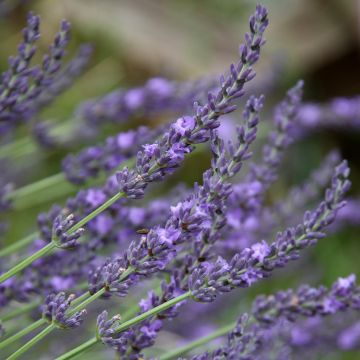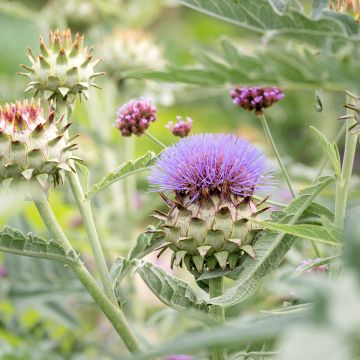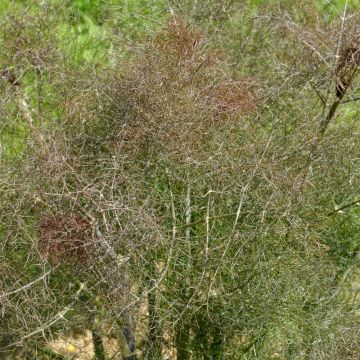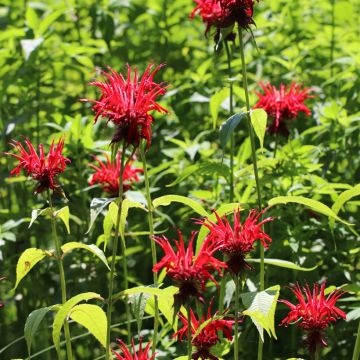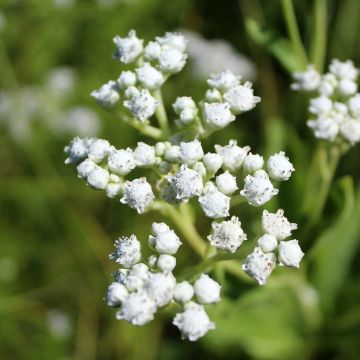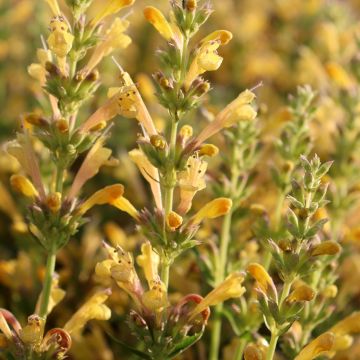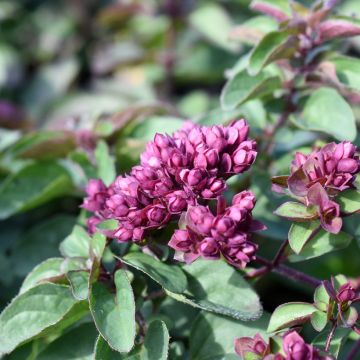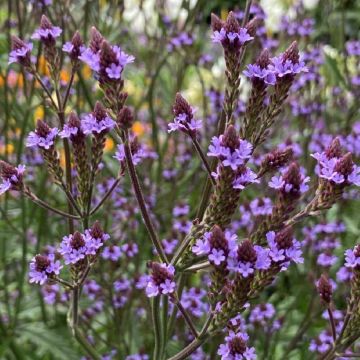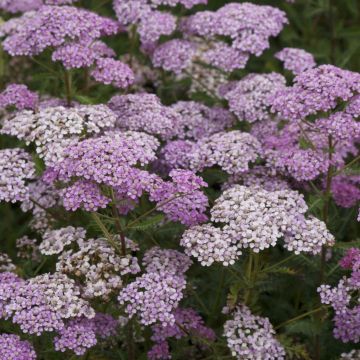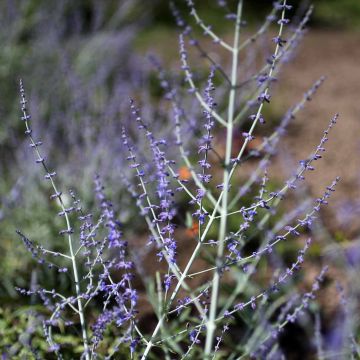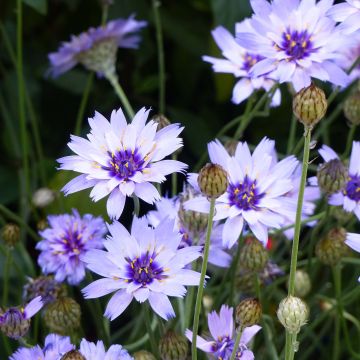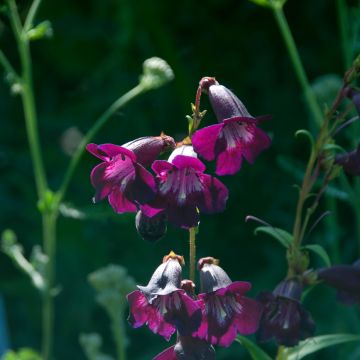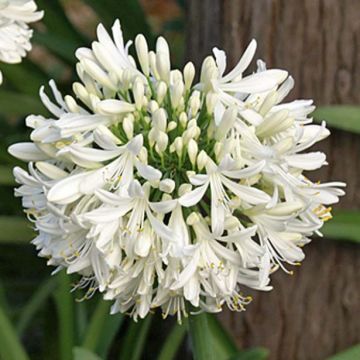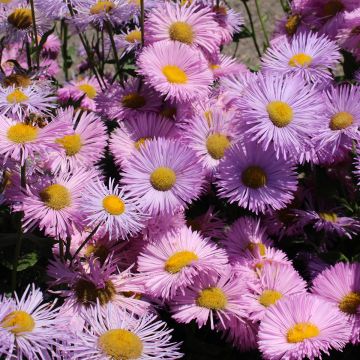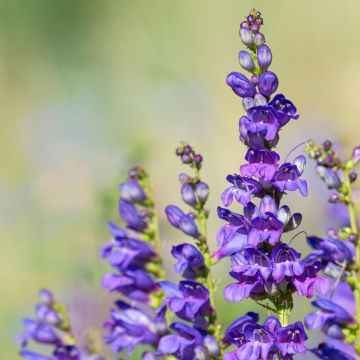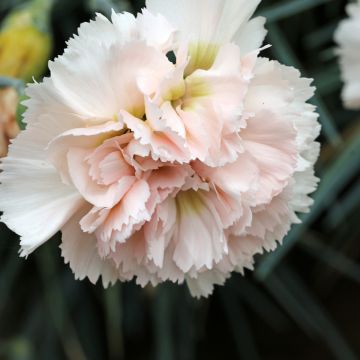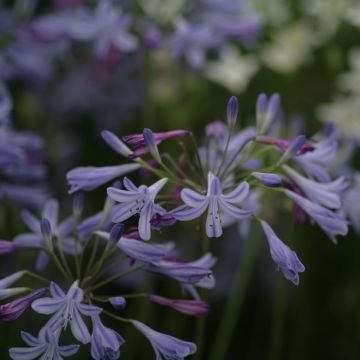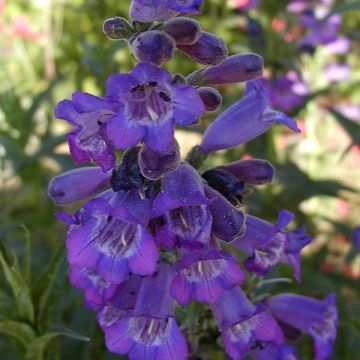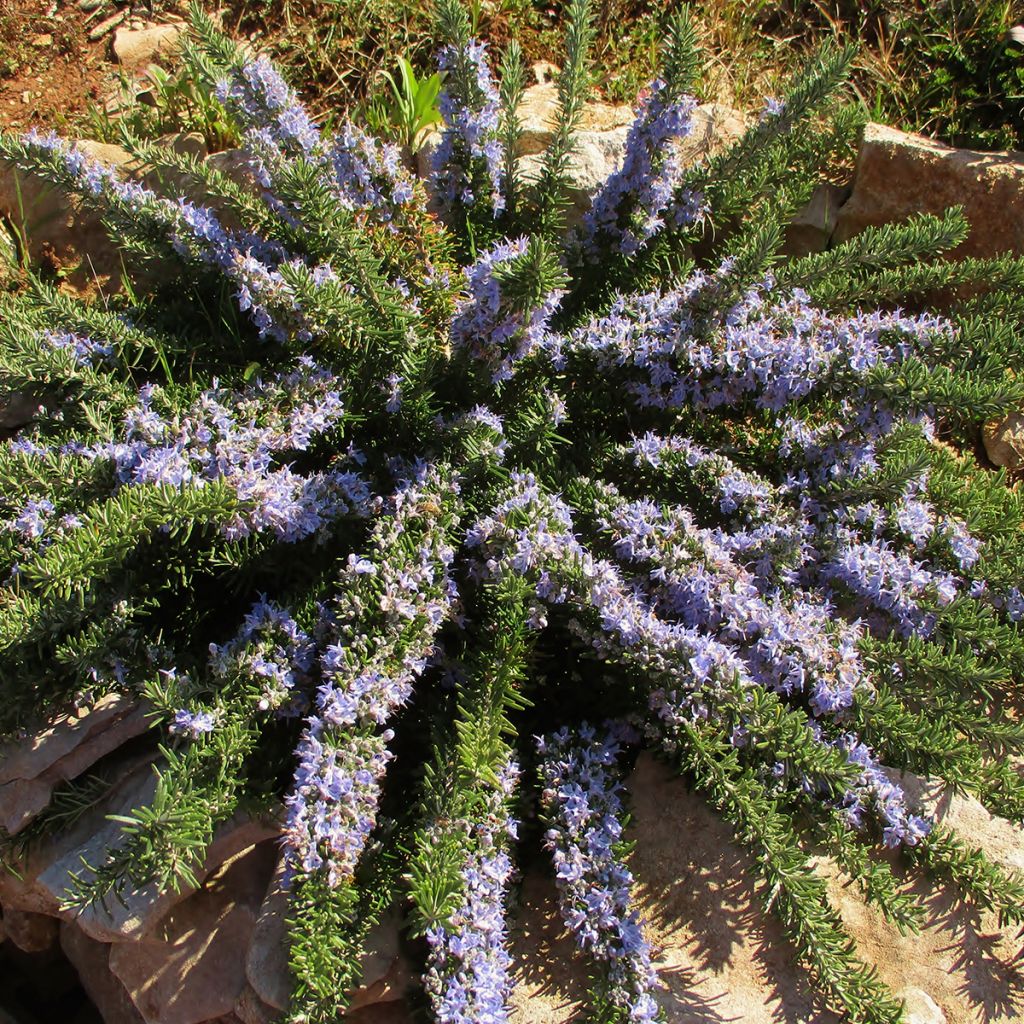

Creeping Rosemary - Rosmarinus officinalis Prostratus
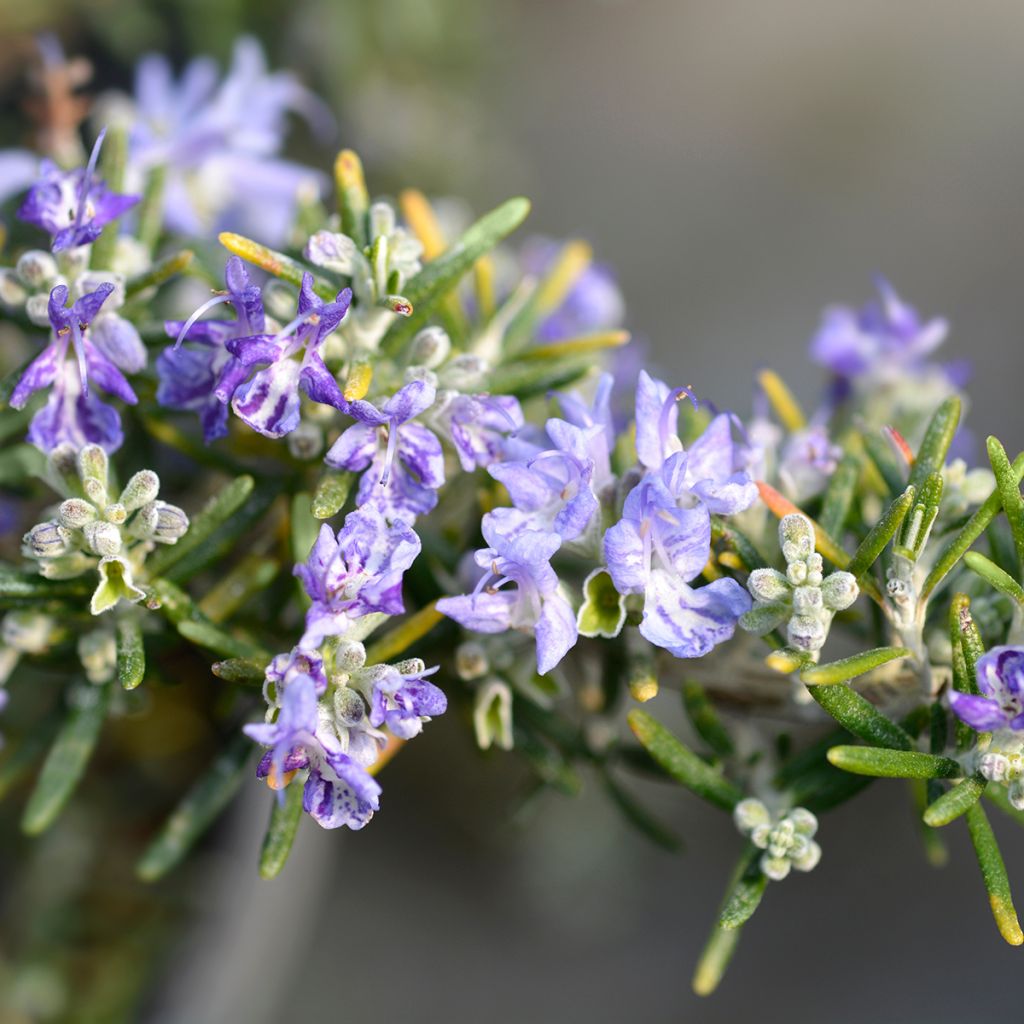

Creeping Rosemary - Rosmarinus officinalis Prostratus
Creeping Rosemary - Rosmarinus officinalis Prostratus
Salvia rosmarinus Prostratus
Rosemary
The rosemary plants were planted in a sloped flower bed. They have already produced beautiful shoots this summer. Combined with lovely lemon yellow sages and potentillas... a very beautiful effect.
Marie laure, 25/10/2025
Special offer!
Receive a €20 voucher for any order over €90 (excluding delivery costs, credit notes, and plastic-free options)!
1- Add your favorite plants to your cart.
2- Once you have reached €90, confirm your order (you can even choose the delivery date!).
3- As soon as your order is shipped, you will receive an email containing your voucher code, valid for 3 months (90 days).
Your voucher is unique and can only be used once, for any order with a minimum value of €20, excluding delivery costs.
Can be combined with other current offers, non-divisible and non-refundable.
Home or relay delivery (depending on size and destination)
Schedule delivery date,
and select date in basket
This plant carries a 12 months recovery warranty
More information
We guarantee the quality of our plants for a full growing cycle, and will replace at our expense any plant that fails to recover under normal climatic and planting conditions.
Would this plant suit my garden?
Set up your Plantfit profile →
Description
Rosmarinus officinalis 'Prostratus' is a variety of rosemary with a prostrate and creeping habit, ideal for beautifully covering the ground of a dry rockery or cascading down a stone wall. With its evergreen foliage and dense vegetation, it discourages weeds. In spring, it is covered with small flowers of a soft lavender blue, attracting pollinators. It often blooms again in late summer and autumn in mild and dry climates. From its Mediterranean origins, it has retained a certain affinity for heat, summer drought, and relatively mild winters. Finally, unlike upright varieties, it ages well, regenerating spontaneously through layering. Give it a dry slope or the rocky soil of a plateau, and it will express all its vigour!
Rosmarinus officinalis is a small shrub native to the Mediterranean basin belonging to the family of Lamiaceae, which includes many medicinal and aromatic plants. In addition to its numerous culinary and therapeutic properties, this plant has long been believed to purify the air and ward off evil spirits. Around the Mediterranean, it was burned like incense. Depending on the regions and its natural environment, it can show quite varied characteristics of hardiness, habit, and flowering.
'Prostratus', as its name suggests, has a horizontal growth. This undershrub, reaching 10 cm to 30 cm (3.9 cm to 11.8 in) in height depending on the growing conditions (it will be more prostrate if exposed to strong and repeated winds), spreads from 1.25 m to 150 m (4.1 ft to 492.1 ft). Its growth is quite slow in poor and dry soil. It grows much faster in rich and cooler soil, but its lifespan will be shorter, and its habit less dense. 'Prostratus' bears very small flowers that are gathered in clusters resembling spikes along the young branches. The evergreen foliage consists of small, shiny, narrow, cottony and whitish green leaves. They have the peculiarity of being rolled up on themselves, giving them a linear appearance. This characteristic is an adaptation to drought. The 'Prostratus' variety is slightly less hardy than common rosemary, but if planted in very well-drained soil it will withstand temperatures down to -10° C to -12° C (14° F to 10.4° F).
Compact, dense, bushy, and blooming for a long period, perfuming the air and the kitchen, rosemary is the perfect choice for a dry garden, a rockery, or simply an arid area where the soil lacks thickness. It can be planted alongside other ground-cover plants such as Juniperus horizontalis 'Blue Chips', Callirhoe involucrata, Malvastrum lateritium, or Teucrium chamaedrys. It can also be planted in front of a low shrub border composed of lavender, groundcover roses like The Fairy, cistus, ballota, creeping ceanothus, and shrubby potentillas. Planted above a wall, this prostrate plant will become spectacular, transformed into a large tapestry cascading over 1 m (3.3 ft). It is an excellent source of nectar for bees at a time of year when flowers are still scarce.
Report an error about the product description
Creeping Rosemary - Rosmarinus officinalis Prostratus in pictures
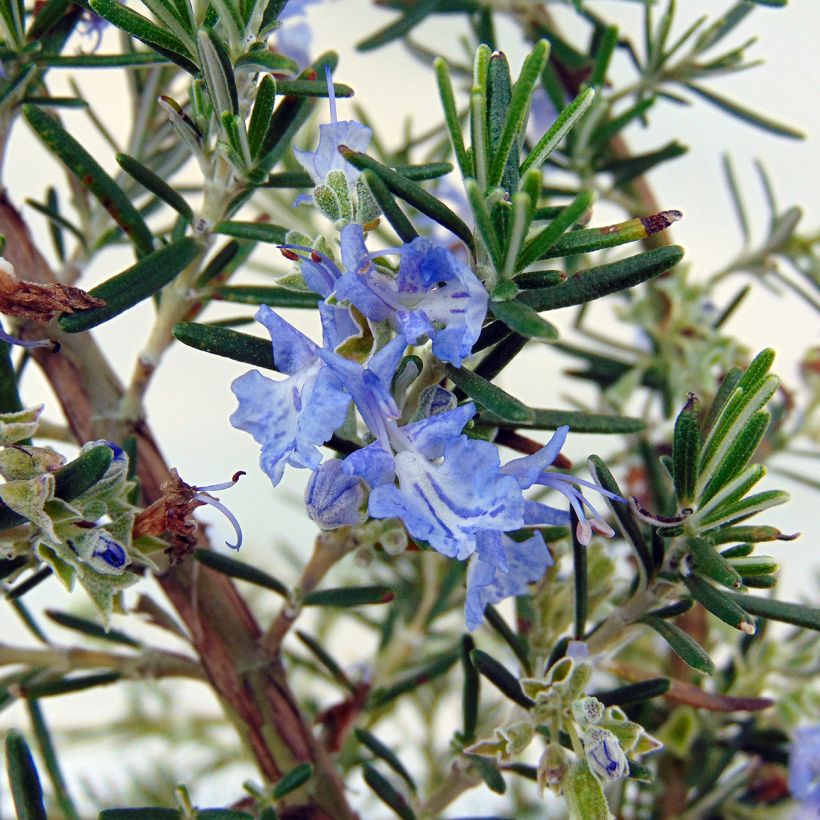

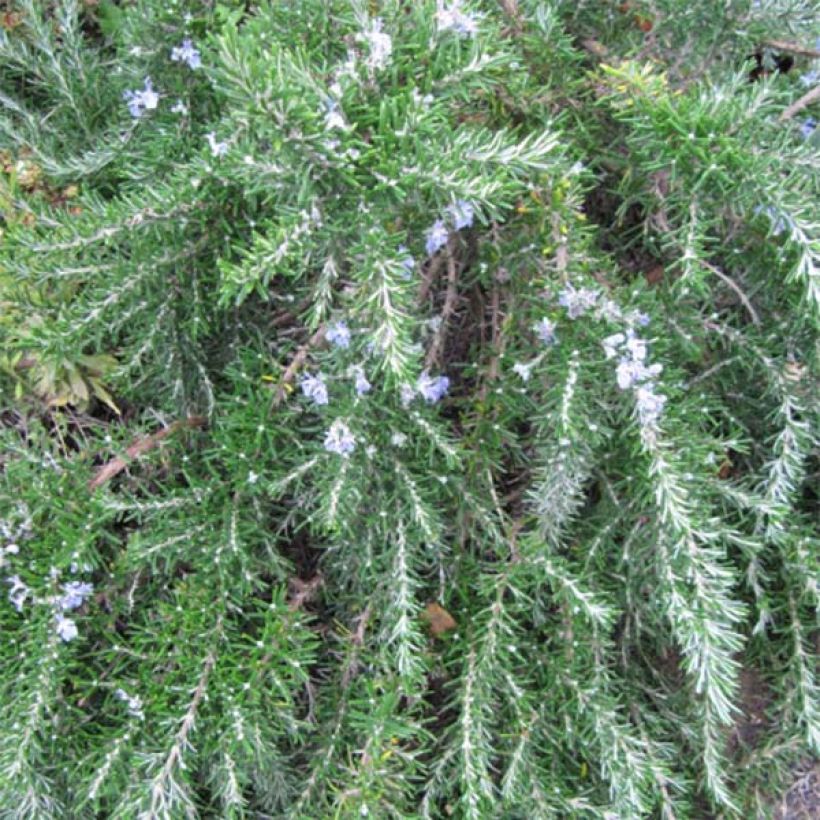

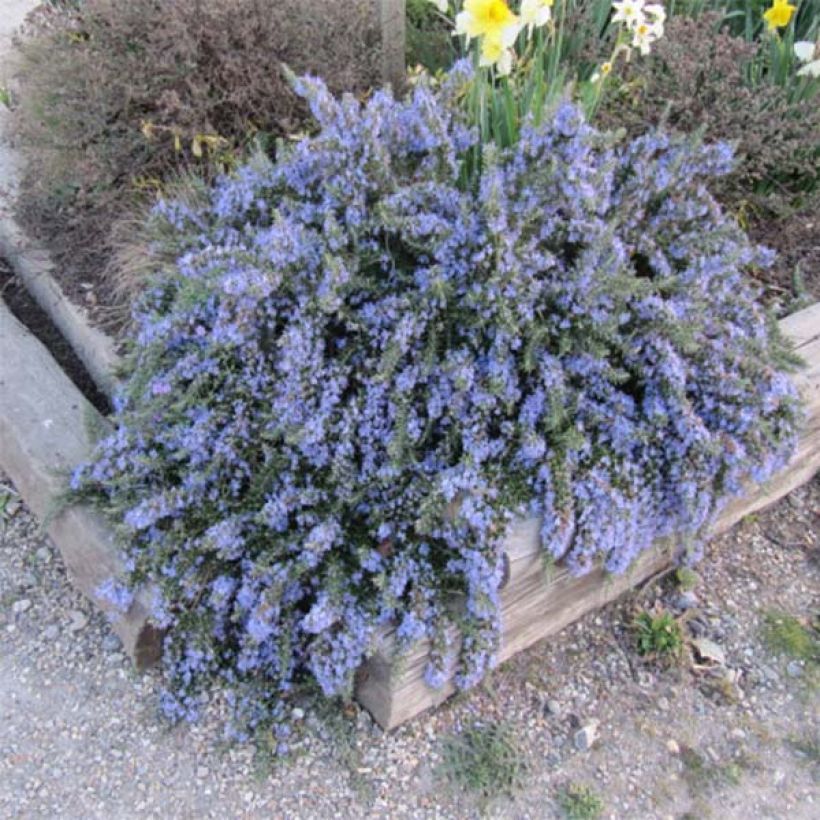

Flowering
Foliage
Plant habit
Botanical data
Salvia
rosmarinus
Prostratus
Lamiaceae
Rosemary
Mediterranean
Other Herb perennials
View all →Planting and care
Rosemary is the perfect plant for poor and dry, well-drained soil. It can even tolerate stony and calcareous soil. The more the soil is drained, the better the plant withstands winter. The richer the soil, the faster rosemary grows, and the worse it ages and thins out at the base. 'Prostratus' is a variety that ages well, without thinning out at the base, since it tends to naturally layer at ground level. It will appreciate a sunny and fairly sheltered position. It is hardy down to -10° C (14° F), but may suffer in harsher winters. It is important to avoid overwatering it during the summer, as it is susceptible to Phytophthora, a fungus that attacks the plant's neck in hot and humid conditions. You can lightly prune after flowering to shape your rosemary and maintain a compact and branching habit.
Planting period
Intended location
Care
-
, onOrder confirmed
Reply from on Promesse de fleurs
Similar products
Haven't found what you were looking for?
Hardiness is the lowest winter temperature a plant can endure without suffering serious damage or even dying. However, hardiness is affected by location (a sheltered area, such as a patio), protection (winter cover) and soil type (hardiness is improved by well-drained soil).

Photo Sharing Terms & Conditions
In order to encourage gardeners to interact and share their experiences, Promesse de fleurs offers various media enabling content to be uploaded onto its Site - in particular via the ‘Photo sharing’ module.
The User agrees to refrain from:
- Posting any content that is illegal, prejudicial, insulting, racist, inciteful to hatred, revisionist, contrary to public decency, that infringes on privacy or on the privacy rights of third parties, in particular the publicity rights of persons and goods, intellectual property rights, or the right to privacy.
- Submitting content on behalf of a third party;
- Impersonate the identity of a third party and/or publish any personal information about a third party;
In general, the User undertakes to refrain from any unethical behaviour.
All Content (in particular text, comments, files, images, photos, videos, creative works, etc.), which may be subject to property or intellectual property rights, image or other private rights, shall remain the property of the User, subject to the limited rights granted by the terms of the licence granted by Promesse de fleurs as stated below. Users are at liberty to publish or not to publish such Content on the Site, notably via the ‘Photo Sharing’ facility, and accept that this Content shall be made public and freely accessible, notably on the Internet.
Users further acknowledge, undertake to have ,and guarantee that they hold all necessary rights and permissions to publish such material on the Site, in particular with regard to the legislation in force pertaining to any privacy, property, intellectual property, image, or contractual rights, or rights of any other nature. By publishing such Content on the Site, Users acknowledge accepting full liability as publishers of the Content within the meaning of the law, and grant Promesse de fleurs, free of charge, an inclusive, worldwide licence for the said Content for the entire duration of its publication, including all reproduction, representation, up/downloading, displaying, performing, transmission, and storage rights.
Users also grant permission for their name to be linked to the Content and accept that this link may not always be made available.
By engaging in posting material, Users consent to their Content becoming automatically accessible on the Internet, in particular on other sites and/or blogs and/or web pages of the Promesse de fleurs site, including in particular social pages and the Promesse de fleurs catalogue.
Users may secure the removal of entrusted content free of charge by issuing a simple request via our contact form.
The flowering period indicated on our website applies to countries and regions located in USDA zone 8 (France, the United Kingdom, Ireland, the Netherlands, etc.)
It will vary according to where you live:
- In zones 9 to 10 (Italy, Spain, Greece, etc.), flowering will occur about 2 to 4 weeks earlier.
- In zones 6 to 7 (Germany, Poland, Slovenia, and lower mountainous regions), flowering will be delayed by 2 to 3 weeks.
- In zone 5 (Central Europe, Scandinavia), blooming will be delayed by 3 to 5 weeks.
In temperate climates, pruning of spring-flowering shrubs (forsythia, spireas, etc.) should be done just after flowering.
Pruning of summer-flowering shrubs (Indian Lilac, Perovskia, etc.) can be done in winter or spring.
In cold regions as well as with frost-sensitive plants, avoid pruning too early when severe frosts may still occur.
The planting period indicated on our website applies to countries and regions located in USDA zone 8 (France, United Kingdom, Ireland, Netherlands).
It will vary according to where you live:
- In Mediterranean zones (Marseille, Madrid, Milan, etc.), autumn and winter are the best planting periods.
- In continental zones (Strasbourg, Munich, Vienna, etc.), delay planting by 2 to 3 weeks in spring and bring it forward by 2 to 4 weeks in autumn.
- In mountainous regions (the Alps, Pyrenees, Carpathians, etc.), it is best to plant in late spring (May-June) or late summer (August-September).
The harvesting period indicated on our website applies to countries and regions in USDA zone 8 (France, England, Ireland, the Netherlands).
In colder areas (Scandinavia, Poland, Austria...) fruit and vegetable harvests are likely to be delayed by 3-4 weeks.
In warmer areas (Italy, Spain, Greece, etc.), harvesting will probably take place earlier, depending on weather conditions.
The sowing periods indicated on our website apply to countries and regions within USDA Zone 8 (France, UK, Ireland, Netherlands).
In colder areas (Scandinavia, Poland, Austria...), delay any outdoor sowing by 3-4 weeks, or sow under glass.
In warmer climes (Italy, Spain, Greece, etc.), bring outdoor sowing forward by a few weeks.






























